Table of Contents
Stephen Rohde, review essay: Is ‘hate speech’ free speech? – First Amendment News 414
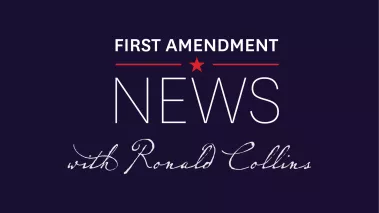
What follows is a review essay by Stephen Rohde of “Hate Speech Is Not Free: The Case Against First Amendment Protection” (2024) by W. Wat Hopkins. Professor Hopkins was invited to reply but declined — though he did note, “While I disagree with much of the review, I am heartened that the book is prompting debate on the issue.”
Our usual profile of cases, news items, books, and articles follows Rohde’s review. – rklc
Is hate speech protected by the First Amendment? Professor W. Wat Hopkins doesn’t think so.
In his new book, “Hate Speech Is Not Free: The Case Against First Amendment Protection,” Hopkins argues that “hate speech” is nothing more than a “verbal attack.” It contains “no ideas of value” and is not part of the marketplace of ideas because its “purpose is not to communicate an idea, but to harm.”

Hopkins, professor emeritus at Virginia Tech, where he taught communications and cyberspace law, is a former editor of the journal Communications Law and Policy. In his slim but densely argued book, he first surveys over a hundred years of First Amendment law and then distills his case into several overlapping arguments. But all told he fails to make a convincing case that “hate speech” should be excluded from constitutional protection.
Indeed, Hopkins’ arguments remind us why not creating a new exception to the First Amendment for hate speech promotes a free and open democracy. Granted, Hopkins’ motive is noble — to combat racism, bigotry, and hate. But those of us who support robust and wide-open free speech believe, along with Frederick Douglass, Dr. Martin Luther King Jr., and many others, that free speech is the friend, not the enemy, of the struggle to achieve equality and human dignity for every person.
Throughout this review, I put “hate speech” in quotation marks because it is a term of art that means different things to different people, including different judges. The quotation marks remind us that “hate speech” has yet to command any consensus on which to build a new regime of censorship.
Hopkins’ case against affording ‘hate speech’ First Amendment protection

Hopkins begins by arguing that “the defining feature of hate speech is that ‘it incurs harm discursively when [it] is uttered,’” and its purpose “isn’t to communicate ideas, but to induce psychological harm,” citing articles by Katharine Gelber and Steven H. Shiffrin. He says that noted linguist George Lakoff believes that “hate speech” can “change the brain in ways that is [sic] more harmful than a physical attack.” Consequently, “[h]ate speech can inflict injury by its very utterance” and therefore is prohibited speech under Chaplinsky v. New Hampshire, a 1942 Supreme Court case that recognized certain exceptions to the First Amendment including obscenity, profane and slanderous speech, and what the Court called “fighting words.”
Hopkins also asserts that “hate speech” is valueless. “The fact that its sole purpose is to cause harm is sufficient evidence of its lack of value, but its intent and content also make it valueless.” He argues that just like fighting words and obscenity, “hate speech” is unprotected because, citing Chaplinsky, it is “no essential part of any exposition of ideas, and [is] of such slight social value as a step to truth that any benefit that may be derived from [it] is clearly outweighed by the social interest in order and morality.”
“Hate speech,” he adds, is closely related to unprotected fighting words, threatening speech, and some categories of intimidating speech, because a defining characteristic of “hate speech” is that it is designed to “directly attack” individuals and groups. He argues that protecting persons from fear is a valid reason for prohibiting “hate speech.”
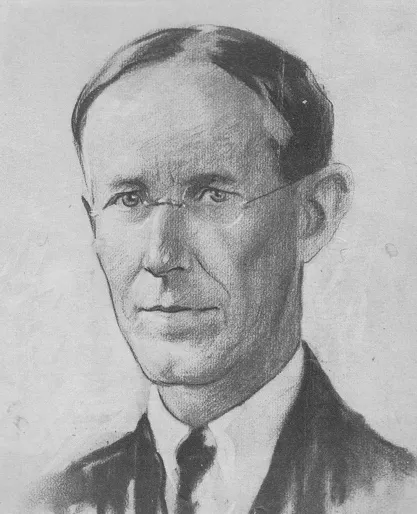
Finally, invoking the views of free speech scholar Alexander Meiklejohn, Hopkins argues that First Amendment protection should extend no further than speech of “self-governing importance” because “a verbal attack has no relation to the business of government.”
Rebutting Hopkins and defending First Amendment protection for ‘hate speech’
Definitional difficulties
The response to Hopkins must begin with his failure to offer a cogent, workable, legally enforceable definition of “hate speech.” He admits that such a definition “is essential if hate speech is to be regulated or, beyond that, cast from First Amendment protection.” He even cites a leading 2020 treatise devoted entirely to “hate speech” which concedes that “hate speech” is “a messy, highly contested concept used in political theory, legal theory, legal documents and in simple common usage with its meaning changing depending on the context of who is using it and to what ends.”
Hopkins cites, by my count, 17 different definitions of “hate speech,” some of which refer to speech that “threatens,” “insults,” or “attacks” people based on their race, ethnicity, national origin, age, religion, gender, or disability. But he doesn’t even attempt to provide a single definition that would meet constitutional requirements. For almost 100 years, the Supreme Court has insisted that all laws, and especially laws affecting speech, “must be sufficiently explicit to inform those who are subject to it what conduct on their part will render them liable to its penalties. . . . [A]nd a statute which either forbids or requires the doing of an act in terms so vague that men of common intelligence must necessarily guess at its meaning and differ as to its application violates the first essential of due process of law.”
In a book whose single purpose is to ostracize an entire category of speech from public discourse and subject it to criminal, civil, and disciplinary punishment, the author has a special responsibility to define what is and is not “hate speech.”
Is it “hate speech” to accuse the Jewish state of Israel of genocide or apartheid? To accuse the Palestinian organization Hamas of genocide or terrorism? Is it “hate speech” for Palestinian protesters to chant “from the river to the sea”? For defenders of Israel to call for killing all members of Hamas? When it comes to “hate speech” based on age or disabilities, what about attacks on 81-year-old Joe Biden and 77-year-old Donald Trump? And if it is none of these things, then what is it?
If by any definition, “hate speech” directed at individuals already qualifies as fighting words, a true threat, incitement, or part of a criminal act, why do we need a new separate exception that is “so vague that men of common intelligence must necessarily guess at its meaning”?
Other fundamental flaws
There are other fundamental flaws in Hopkins’ argument. He relies heavily on Chaplinsky. There, a member of the Jehovah’s Witnesses was arrested for lashing out at a town marshal, shouting, “You are a God-damned racketeer” and “a damned Fascist.” Characterizing the outburst as “fighting words,” the Supreme Court upheld his criminal conviction. But Hopkins readily admits that “the fighting words doctrine has all but died.” Today, would we actually want someone to go to jail for calling, say, a former president, “a damned Fascist”?
What Hopkins really likes about Chaplinsky is the notion that speech is unprotected when it is “no essential part of any exposition of ideas, and [is] of such slight social value as a step to truth that any benefit that may be derived from [it] is clearly outweighed by the social interest in order and morality.”
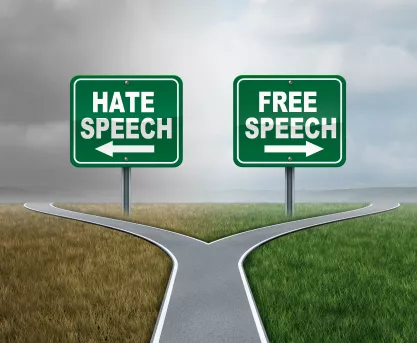
No new First Amendment exceptions
In the eighty-plus years since it was decided, Chaplinsky has not given birth to any newly announced Supreme Court exceptions to the First Amendment. Instead, the trajectory of free speech law has been in the opposite direction. Certain forms of libel were never considered protected speech under the First Amendment until New York Times v. Sullivan (1964) held that libel involving public officials, public figures, and matters of public interest, made without knowledge of falsity or in reckless disregard of the truth, is entitled to First Amendment protection. Likewise, obscenity was never considered protected speech until Miller v. California (1973) held that only an obscene work, which, “taken as a whole, lacks serious literary, artistic, political, or scientific value,” can be denied First Amendment protection.
The Court has routinely refused Hopkins’ invitation to use the language in Chaplinsky to expand the number of exceptions to the First Amendment. In United States v. Stevens (2010), the Court refused to exclude so-called “crush videos,” containing depictions of animal cruelty, from First Amendment protection. And in Ashcroft v. Free Speech Coalition (2002), the Court refused to create a new First Amendment exception for virtual child pornography, including computer-generated images, or "any sexually explicit image” that was advertised “in such a manner that conveys the impression it depicts a minor engaging in sexually explicit conduct.”
At its core, Hopkins’ theoretical argument is divorced from the realities of how debates over race, religion, gender, nationalities, and ethnicities are actually conducted in the real world. Much of what he would label “hate speech” is in fact political speech expressed in controversial, hyperbolic, outrageous, and even offensive terms, all of which deserve full First Amendment protection.
Constitutionally protected political ideas
Hopkins repeatedly claims that the essence of “hate speech” “is to cause harm without the expression of any ideas.” But in doing so he has set a trap for himself. If speech does in fact express an idea — any idea — then it falls outside of Hopkins’ definition and is therefore entitled to First Amendment protection.
Expressions of hatred toward Adolph Hitler and celebration of his death are political ideas and are therefore constitutionally protected. Expressions of hatred toward Ismail Haniyeh, the political leader of Hamas, and calls for his assassination, or expressions of hatred toward Benjamin Netanyahu, Prime Minister of Israel, and calls for his assassination, are all political ideas and are therefore constitutionally protected. These expressions are not to be banished from political debate because Haniyeh is Muslim and Netanyahu is Jewish. And our commitment to robust and wide-open debate does not require that we sanitize these political views by requiring that they be spoken in polite and demur phases like “I oppose Hamas” or “I oppose Israel.”
Using the Chaplinsky framework on which Hopkins bases his entire argument, these expressions of hatred are in fact an “essential part” of the “exposition of ideas,” because they possess significant “social value as a step to truth” which should not be silenced by a generalized “interest in order and morality.”
As Justice Holmes wrote in 1929: “[I]f there is any principle of the Constitution that more imperatively calls for attachment than any other, it is the principle of free thought — not free thought for those who agree with us but freedom for the thought that we hate.”
Slippery slopes
Our law, the Supreme Court, and America itself will slide down a very dangerous slippery slope if we accept Hopkins’ invitation to censor whatever he means by “hate speech.” Today, we may applaud the punishment of speech we loathe, but tomorrow we will rue the day that speech we cherish cannot be spoken. U.S. law has fashioned a few narrow exceptions for fighting words, true threats, incitement, harassment, and speech used in the commission of a crime to deal with speech outside the purview of the First Amendment. We don’t need a new vague and ambiguous exception for “hate speech.”
Instead of policing speech, we need to devote ourselves to the more difficult task at hand: the unfinished business of dismantling the political, social, economic, and societal institutions that perpetuate racism, sexism, discrimination, and bigotry in our country.
Forthcoming book: Rabban on Academic freedom and the First Amendment
- David Rabban, “Academic Freedom: From Professional Norm to First Amendment Right” (Harvard University Press, August 2024)
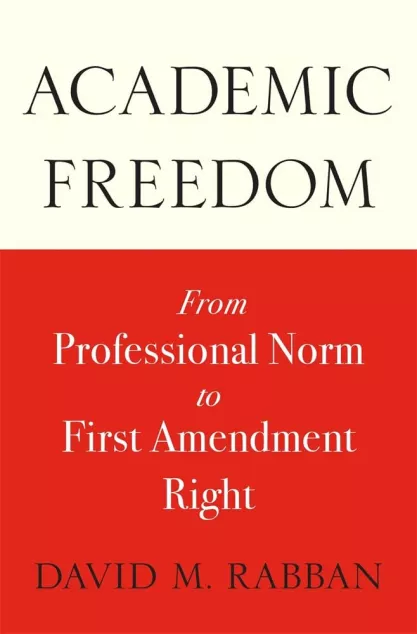
A definitive interpretation of academic freedom as a First Amendment right, drawing on a comprehensive survey of legal cases.
Is academic freedom a First Amendment right? Many think so, yet its relationship to free speech as guaranteed by the Constitution is anything but straightforward. David Rabban examines the extensive case law addressing academic freedom and free speech at American universities, developing a robust theory of academic freedom as a distinctive subset of First Amendment law.In subsuming academic freedom under the First Amendment, Rabban emphasizes the societal value of the contribution to knowledge made by the expert speech of professors, the classic justification for academic freedom in the influential 1915 Declaration of the American Association of University Professors (AAUP). Any indication that professors might be disciplined because people without academic training disagree with their scholarly views would undermine confidence in the integrity of their work and therefore their ability to perform this vital function on behalf of the public. Rabban argues that academic freedom fosters two central First Amendment values recognized by courts in a wide range of contexts: the production and dissemination of knowledge and the contribution of free expression to democratic citizenship.
The First Amendment right of academic freedom applies most directly to professors, but it also plausibly extends to the educational decisions of universities and to students’ learning interests. More broadly, this vision of academic freedom can guide in developing additional distinctive First Amendment rights to protect the expert expression of journalists, librarians, museum curators, and other professionals. At a time when academic freedom is under attack from many directions, Academic Freedom proposes a theoretically satisfying and practically useful guide to its meaning as a First Amendment right.
Related
- Graham Piro, “Amy Wax hearing report confirms fears over erosion of academic freedom at Penn,” FIRE (March 4)
Florida ‘Stop WOKE’ law shot down by 11th Circuit panel
- Andrew Atterbury, “Appeals court slams Florida’s ‘Stop-Woke’ law for committing ‘greatest First Amendment sin’,” Politico (March 4)
Florida is legally blocked from enforcing a key portion of the high-profile 2022 law restricting what Gov. Ron DeSantis called “woke” workplace trainings about race after a federal appeals court ruled Monday that the policy “exceeds the bounds of the First Amendment.”
A three-judge panel of the 11th U.S. Circuit Court of Appeals dealt a blow to the DeSantis administration by deeming one of the Republican governor’s signature laws — the “Stop Woke” Act — unconstitutional, upholding a previous ruling that prevented it from taking hold. DeSantis officials, meanwhile, disagreed with the decision, signaling that the governor could ask the Supreme Court to weigh in.
“By limiting its restrictions to a list of ideas designated as offensive, the Act targets speech based on its content,” Judge Britt C. Grant, an appointee of former President Donald Trump, wrote in the opinion. “And by barring only speech that endorses any of those ideas, it penalizes certain viewpoints — the greatest First Amendment sin.”
Florida’s Republican-led Legislature passed the “anti-woke” legislation, FL HB 7 (22R), or the Individual Freedom Act, in 2022 with the backing of DeSantis. It expanded Florida’s anti-discrimination laws to prohibit schools and companies from leveling guilt or blame to students and employees based on race or sex, taking aim at lessons over issues like “white privilege” by creating new protections for students and workers, including that a person should not be instructed to “feel guilt, anguish, or any other form of psychological distress” due to their race, color, sex or national origin.
First Amendment Watch Q&A with Alex Abdo on ‘Jawboning’ social media case
- Susanna Granieri, “The Knight Institute’s Alex Abdo on ‘Jawboning’ Social Media Case Before the Supreme Court,” First Amendment Watch (March 5)
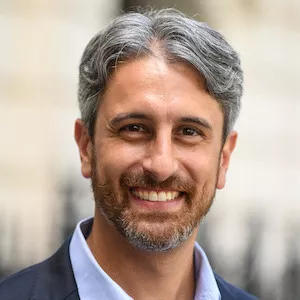
Mis- and disinformation on major social media platforms grew exponentially during the 2016 presidential election and the COVID-19 pandemic, which prompted efforts by the U.S. government to communicate its concerns about the spread of such speech on major social media platforms.
Years later, the Supreme Court is tasked with deciding whether the Biden administration’s efforts to curtail mis- and disinformation online violates the First Amendment.
The case, Murthy v. Missouri, was brought by the Republican Attorneys General in Missouri and Louisiana, as well as a group of five social media users, including physicians who claim their posts criticizing COVID-19 policies were unconstitutionally censored and the government overstepped in its attempt to discuss COVID-19 and election misinformation with social media platform executives.
A federal judge in Louisiana granted a preliminary injunction in July blocking the Biden administration and key government agencies from communicating with the platforms, describing the government’s efforts as a “far-reaching and widespread censorship campaign.” That order was then significantly narrowed by the U.S. Court of Appeals for the Fifth Circuit, but the appellate court said officials cannot attempt to “coerce or significantly encourage” changes in online content. In its decision to take on the case in October, the Supreme Court blocked the lower courts’ restrictions on the administration’s communications with social media companies throughout the duration of the litigation. Oral arguments are scheduled on March 18.
First Amendment Watch spoke with Alex Abdo, litigation director of the Knight First Amendment Institute at Columbia University, which filed an amicus brief on behalf of neither party in the case. Abdo discussed the importance of the social media cases before the court this term, the need for clarity on the constitutional line between persuasion and coercion, and expressed his belief that it’s important for the government to have the opportunity to express its own views to social media platforms that have the power to shape public opinion. [Q&A continues here]
Forthcoming scholarly article on revenge porn, elections, and the First Amendment
- Zachary Starks-Taylor and Jamie Miller, “Politicians Live on Camera: Revenge Porn, Elections, and the First Amendment,” New York University Law Review (2024)
Since our nation’s founding, the private sex lives of politicians have been a consistent topic of public concern. Sex scandals, such as those involving Alexander Hamilton, Bill Clinton, and Donald Trump, have consumed the focus of the public. With the advent of the internet and social media, a new dimension has been added to that conversation: now, details of a politician’s sex life often come accompanied by photo or video evidence. Outside of the election context, when someone shares an individual’s private explicit material without their consent, they have committed the crime of “revenge porn.”
Recent high-profile incidents have raised the question of whether the crime of revenge porn can still be prosecuted when the disclosure of private explicit materials involves a political candidate. In the election context, unique First Amendment concerns about chilling political speech result in heightened speech protections. Before prosecuting a case, prosecutors must grapple with the question: Does the First Amendment protect revenge porn when it is used to influence an election?
This Essay argues that the special First Amendment concerns about elections are diminished in the revenge porn context: the statutes are already tailored to address those concerns, and the state’s independent interest in enforcing revenge porn laws is still compelling. As such, it concludes that the First Amendment should not have extra force in a revenge porn case just because the disclosure occurred in the context of an election.
‘60 Minutes’ book-banning segment
- “97 Books,” 60 Minutes (March 1)
Scott Pelley reports on the battle to ban 97 books in one South Carolina public school district and the role played by the national movement for “parental rights” inspired by a group called Moms for Liberty.

Related
- Gay Ivey, “How teens benefit from being able to read ‘disturbing’ books that some want to ban,” Free Speech Center (March 1)
‘So to Speak’ podcast on Taylor Swift and Satan . . . and more!
- “Free speech news: NetChoice, Taylor Swift, October 7, and Satan,” FIRE (Feb. 29)
On today's free speech news roundup, we discuss the recent NetChoice oral argument, Taylor Swift, doxxing, October 7 fallout on campus, and Satan in Iowa.
Joining us on the show are Alex Morey, FIRE director of Campus Rights Advocacy; Aaron Terr, director of Public Advocacy; and Ronnie London, our general counsel.
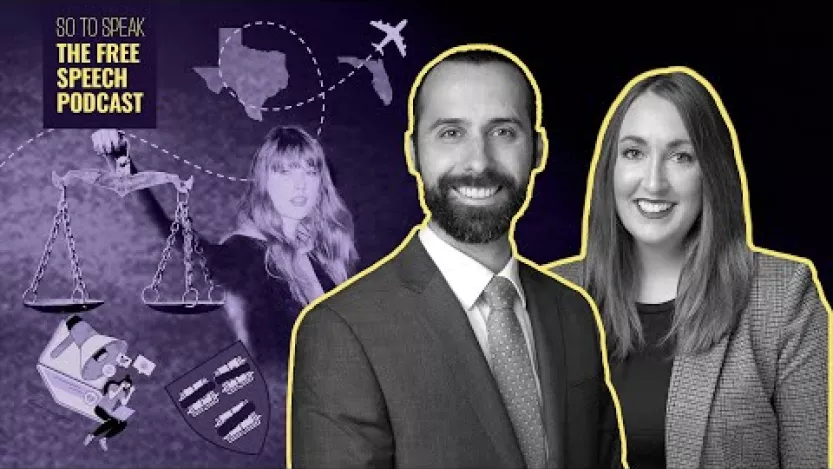
Related
- Lynn Greenky, “Publishing Taylor Swift’s flight info: Stalking or protected free speech?” Free Speech Center (March 5)
More in the news
- “Trump’s Lawyers Fight DA’s Request for a Gag Order in His Hush-Money Criminal Case,” First Amendment Watch (March 5)
- Eugene Volokh, “Principal’s Libel Lawsuit Over Claims He Was Fired for Sexual Harassment Can Go Forward,” The Volokh Conspiracy (March 5)
- “Small Business Reporting Requirement Found Unconstitutional by Alabama Federal Judge,” First Amendment Watch (March 5)
- Leslie Corby, “American University silent amid concerns over sweeping speech bans,” FIRE (March 5)
- Grayson Clary, “In blockbuster First Amendment cases, US Supreme Court seems splintered,” Reporters Committee (March 4)
2022-2023 SCOTUS term: Free expression and related cases
Cases Decided
McKesson v. Doe (Per Curiam: 7-1 with Thomas, J., dissenting: “[W]e conclude that the Fifth Circuit should not have ventured into so uncertain an area of tort law — one laden with value judgments and fraught with implications for First Amendment rights — without first seeking guidance on potentially controlling Louisiana law from the Louisiana Supreme Court. We ex- press no opinion on the propriety of the Fifth Circuit certifying or resolving on its own any other issues of state law that the parties may raise on remand. We therefore grant the petition for writ of certiorari, vacate the judgment of the United States Court of Appeals for the Fifth Circuit, and remand the case to that court for further proceedings consistent with this opinion.”)
Review granted
- Vidal v. Elster (argued Nov. 1)
- O’Connor-Ratcliff v. Garnier (argued Oct. 31)
- Moody v. NetChoice, LLC and NetChoice, LLC v. Paxton (argued Feb. 26)
- National Rifle Association of America v. Vullo (argument: March 18)
- Murthy v Missouri (argument: March 18)
- Speech First, Inc. v. Sands (certiorari granted, judgment re the bias policy claims vacated, and case remanded to the Court of Appeals for the 4th Circuit with instructions to dismiss those claims as moot) (Thomas and Alito, dissenting)
Pending petitions
- No on E, San Franciscans Opposing the Affordable Care Housing Production Act, et al. v. Chiu
- Mckesson v. Doe
- M. C. v. Indiana Department of Child Services
- Pierre v. Attorney Grievance Commission of Maryland
- Brokamp v. James
- O’Handley v. Weber
State action
- Lindke v. Freed (argued Oct. 31)
Review denied
- Porter v. Martinez
- Molina v. Book
- Porter v. Board of Trustees of North Carolina State University
- NetChoice, LLC v. Moody
- Alaska v. Alaska State Employees Association
- X Corp. v. Garland
- Tingley v. Ferguson (Justice Kavanaugh would grant the petition for a writ of certiorari. Justice Thomas, dissenting from the denial of certiorari. (separate opinion) Justice Alito, dissenting from the denial of certiorari. (separate opinion)
- Jarrett v. Service Employees International Union Local 503, et al
- Sharpe v. Winterville Police Dept.
- Winterville Police Department v. Sharpe
- Stein v. People for the Ethical Treatment of Animals, Inc., et al.
- Blankenship v. NBCUniversal, LLC
- Center for Medical Progress v. National Abortion Federation
- Frese v. Formella
- Mazo v. Way
Free speech related
- Miller v. United States (pending) (statutory interpretation of 18 U.S.C. § 1512(c) advocacy, lobbying and protest in connection with congressional proceedings) // See also Fischer v. United States
Previous regularly scheduled FAN
FAN 413: “Certainty and uncertainty: The tech platform cases”
This article is part of First Amendment News, an editorially independent publication edited by Ronald K. L. Collins and hosted by FIRE as part of our mission to educate the public about First Amendment issues. The opinions expressed are those of the article’s author(s) and may not reflect the opinions of FIRE or Mr. Collins.
Recent Articles
FIRE’s award-winning Newsdesk covers the free speech news you need to stay informed.

From the UK to Germany to Singapore: Police are watching what you post

Wisconsin school district mulls unconstitutional ‘hate speech’ policy
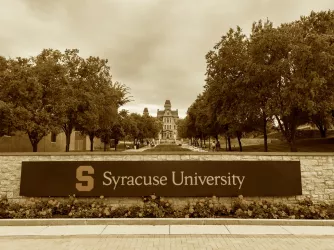
A cartoon, a mustache, and a witch hunt: The perils of bias reporting at Syracuse University


